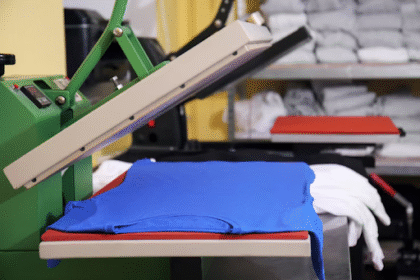The cannabis industry is evolving rapidly, driven by changing laws, consumer preferences, and innovations in supply chain management. One of the most transformative trends reshaping the industry today is bulk weed delivery.
This new approach to distribution is not only streamlining operations for growers, distributors, and retailers but also enhancing the customer experience and expanding market access. In this article, we’ll explore how bulk weed delivery is changing the cannabis industry and what it means for the future of cannabis commerce.
The Traditional Cannabis Supply Chain
Traditionally, the cannabis supply chain has been segmented and complex. Cultivators grow the product, which is then processed and packaged before being distributed to dispensaries or individual customers. This process involves multiple intermediaries and a lot of regulatory compliance, especially given the patchwork of cannabis laws across states and countries.
For many years, cannabis transactions have focused on small, retail-sized quantities, whether for recreational or medicinal use. Consumers typically purchase grams or ounces of flower, and businesses often manage inventory in smaller units. While this system works, it has limitations in terms of efficiency and scalability, particularly as demand surges and legal markets mature.
What Is Bulk Weed Delivery?
Bulk weed delivery refers to the transportation and sale of cannabis products in large quantities, typically intended for commercial clients such as dispensaries, cannabis clubs, or large-scale consumers. Instead of handling small packets or pre-packaged retail units, bulk delivery moves large volumes of flower, concentrates, or other cannabis products directly from cultivators or wholesalers to retailers or end users.
Bulk deliveries can involve pounds of flower, kilograms of concentrate, or large amounts of other cannabis derivatives. This model is more akin to traditional wholesale distribution seen in industries like alcohol or pharmaceuticals.
Efficiency and Cost Benefits
One of the most significant advantages of weed delivery is efficiency. By consolidating shipments into large batches, producers and distributors reduce the frequency and cost of transportation. Instead of multiple small deliveries, a single bulk shipment meets the needs of an entire dispensary or multiple outlets, cutting down on logistical overhead.
This reduction in transportation and packaging costs often translates to better pricing for retailers and, ultimately, consumers. Bulk delivery can provide economies of scale that allow businesses to pass savings down the supply chain. For dispensaries operating on thin margins, this is a game-changer that improves profitability and competitiveness.
Additionally, bulk delivery can help stabilize supply chains by ensuring that retailers maintain consistent inventory levels. This is particularly critical in regions with fluctuating cannabis availability or regulatory hurdles.
Enhanced Product Quality and Freshness
Bulk weed delivery also impacts product quality. When cannabis is handled in smaller quantities with multiple points of transfer, there is a higher risk of degradation due to exposure to air, light, or improper storage. Bulk delivery systems often use optimized packaging and transport methods that preserve freshness, potency, and terpene profiles.
For instance, vacuum-sealed or nitrogen-flushed packaging during bulk transport prevents oxidation and moisture loss. Faster delivery schedules associated with bulk shipments also reduce the time cannabis spends in transit or storage, further preserving quality.
Retailers benefit from receiving fresher products, which improves customer satisfaction and can boost repeat business. For cannabis enthusiasts and medicinal users, product quality is paramount, and bulk delivery addresses these concerns effectively.
Streamlining Regulatory Compliance
Navigating cannabis regulations can be daunting. Bulk weed simplifies some aspects of compliance by consolidating transactions. Instead of handling multiple small shipments with separate paperwork and tracking, businesses manage fewer, larger deliveries.
This can make seed-to-sale tracking, inventory audits, and tax reporting more straightforward. Regulators often require detailed records of cannabis movement, and bulk delivery systems can integrate technology to automate compliance documentation.
Moreover, bulk delivery reduces the chance of errors or discrepancies in reporting, as fewer transactions mean less room for mistakes. This improves transparency and trust between cannabis businesses and regulatory agencies.
Expanding Market Access
Bulk weed delivery is opening doors for new market opportunities, especially for smaller dispensaries or cannabis clubs that previously struggled to secure reliable supplies. By offering wholesale pricing and bulk shipments, cultivators and distributors can reach a broader customer base.
This democratization of access benefits both producers and consumers. Producers can scale sales faster by serving multiple clients through bulk shipments, while consumers gain access to more consistent and diverse product offerings.
In emerging markets or areas where cannabis is newly legalized, bulk delivery infrastructure can accelerate market development by quickly connecting supply with demand. This helps reduce shortages and keeps prices stable during the early phases of legalization.
Supporting Sustainability Initiatives
The cannabis industry is increasingly focused on sustainability, and weed delivery contributes to greener practices. Fewer shipments mean less fuel consumption, reduced carbon emissions, and less packaging waste.
Bulk deliveries also encourage more efficient inventory management, reducing overproduction and spoilage. Retailers can order what they need in larger quantities, minimizing leftover stock that might go unused or require disposal.
Some cannabis businesses are incorporating eco-friendly packaging for bulk shipments, such as recyclable or biodegradable materials, further aligning with environmental goals. This resonates well with consumers who prioritize sustainability in their purchasing decisions.
Challenges and Considerations
While weed delivery offers numerous benefits, it also presents challenges. Legal restrictions vary widely between states and countries, affecting who can transport, receive, and sell bulk cannabis. Businesses must navigate these complex laws carefully to avoid penalties.
Security is another major concern. Transporting large quantities of cannabis requires stringent measures to prevent theft or diversion. Many companies invest heavily in secure vehicles, GPS tracking, and armored transport to protect their shipments.
Additionally, quality control in bulk shipments can be tricky if product batches are not uniform. Variability in flower quality or potency must be managed to ensure consistent retail experiences.
The Future of Bulk Weed
Looking ahead, bulk weed will likely become a cornerstone of the cannabis industry’s supply chain. As legalization expands and markets mature, efficiency, scalability, and regulatory compliance will drive adoption.
Technology will play a crucial role, with advanced tracking systems, automated compliance tools, and data analytics optimizing delivery routes and inventory management. Integration with e-commerce platforms will also make ordering bulk cannabis easier and more transparent.
Furthermore, bulk delivery may enable innovative business models such as cooperative purchasing groups or regional distribution hubs, which can further reduce costs and improve market reach.
Conclusion
Bulk weed delivery is revolutionizing the cannabis industry by streamlining logistics, improving product quality, enhancing regulatory compliance, and expanding market access. This shift from small-scale, fragmented transactions to large-volume distribution is helping cannabis businesses operate more efficiently while meeting growing consumer demand.
As the cannabis market continues to evolve, weed delivery will be an essential driver of growth and sustainability. Businesses that embrace this trend early will position themselves for long-term success in the rapidly changing cannabis landscape.




